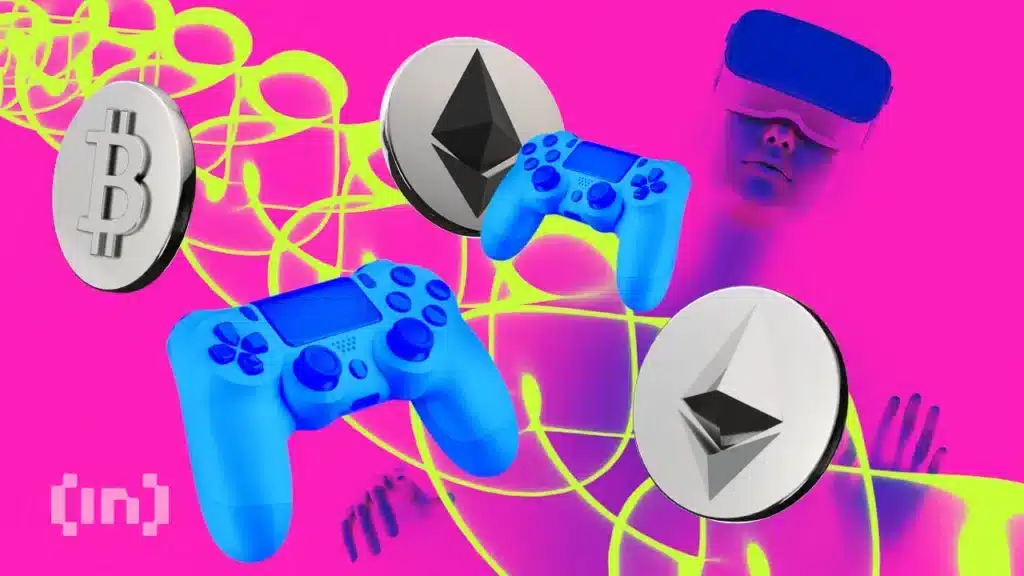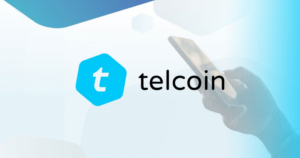Game On, Be Private: The New Age of Privacy – The First Game

Despite the familiar sounds of the controls and the attractive brightness of the screens, a gaming revolution is taking place. Blockchain, once only for crypto fans, is now changing how we play, compete and earn in virtual worlds.
In the year Estimated to reach a total size of USD 455.30 billion by 2024, the gaming industry is undergoing a major transformation. The result of blockchain technology is reshaping gaming and creating immersive universes where every action carries real-world consequences and your skills translate into tangible rewards.
Blockchain games are freeing themselves from the limitations of centralized servers and publishers, with player ownership and an open economy. Yet, amid the excitement of play-to-earn models and decentralization, a critical question emerges: Can we unleash the full potential of blockchain gaming without ensuring digital privacy?
This article explains the blockchain game and its changes in gaming. It emphasizes the key role of privacy in realizing its true potential for an unparalleled blockchain experience. In a world where every transaction is recorded on a public ledger, finding the right balance between transparency and anonymity has become essential.
How blockchain is redefining digital property rights
Most of us grew up in an era where games were closed systems where metal-clad publishers bought them. We didn't have any real power or say in matters related to gameplay, and we weren't free to paint our own narratives, confined to the walls our imaginations built. In contrast, blockchain games offer a new model of ownership and agency where players write the rules and build a community-powered future.
Yes, blockchain technology has revolutionized ownership, turning virtual assets into precious NFTs with real-world value. Think of slaying a dragon in the game and the scales as an NFT – the more skill you get, the more valuable your NFT will be. This “game-to-earn” content blurs the line between entertainment and monetary opportunities.
Decentralized networks are shifting power to gaming communities, replacing centralized control with player-driven economies. In this model, in-game rules are shaped through collective decisions, creating active virtual communities where your voice matters. The future of the game is not just about playing; It's about building, owning and enriching collaborative worlds powered by transformational blockchain.
Token Victory: Exploring the Impact of Blockchain
Blockchain is shaping another gaming realm: eSports. The global eSports market is predicted to grow from $1.72 billion in 2023 to $6.75 billion in 2030. This represents a CAGR of 21.5% during the forecast period. Forums like Citizen Clash and many others are trying to democratize this aspect of competition. This could level the playing field by rewarding skill and diligence with a transparent in-game economy and accessible NFT assets. This inclusivity allows anyone, regardless of background, to compete and earn real-world rewards. Meanwhile, titles like Rarity Rush add to the mix of fantasy sports and blockchain by enabling ownership, management and trading of NFT-based player cards tied to real-world performance.
While these narratives offer interesting possibilities, privacy issues remain. Traditional online games often collect and store player data, exposing them to targeted advertising, invasive marketing, and security risks. While blockchain brings transparency and flexibility, integrating our financial lives with crypto wallets and transactions in virtual worlds raises real privacy issues. How does a blockchain game designed for transparency navigate the delicate balance between access and privacy?
The Privacy Paradox: Balancing gaming enjoyment with user data security
Amid the blockchain revolution, the critical issue of privacy comes to the fore. While blockchain transparency promotes trust and fair play, it also exposes the player's digital actions to the public eye. Every transaction, asset transfer and competitive match is recorded on the ledger, which can raise concerns about tracking, profiling and targeted attacks.
Privacy and transparency can coexist in the blockchain game. By focusing on smart contract security and using privacy tools such as decentralized identity solutions, blockchain gaming can offer limitless possibilities without compromising players' digital freedom.
Ensuring robust privacy in the blockchain game requires collaborative efforts from:
Developers: Prioritize user trust through strong security measures, minimal data collection, and giving players control over their in-game data. Players: Understanding the balance between privacy and anonymity and choosing platforms that prioritize responsible data practices. Regulators: Establish clear frameworks that encourage innovation while protecting user privacy and preventing data misuse.
The promising horizon of the blockchain game requires the vigilance of developers
The blockchain game on the horizon is promising, but not without hurdles to overcome. In navigating this evolving landscape, developers are responsible for emphasizing robust security measures and integrating privacy-enhancing features. By doing so, they pave the way for players to keep their gaming experience authentic and enjoy the rewards while maintaining their digital freedom.
Disclaimer
In compliance with Trust Project guidelines, this opinion piece presents the views of the author and may not necessarily reflect the views of BeInCrypto. BeInCrypto is committed to transparent reporting and maintaining the highest journalistic standards. Readers are advised to independently verify information and consult with professionals before making decisions based on this content. Please note that our terms and conditions, privacy policies and disclaimers have been updated.













